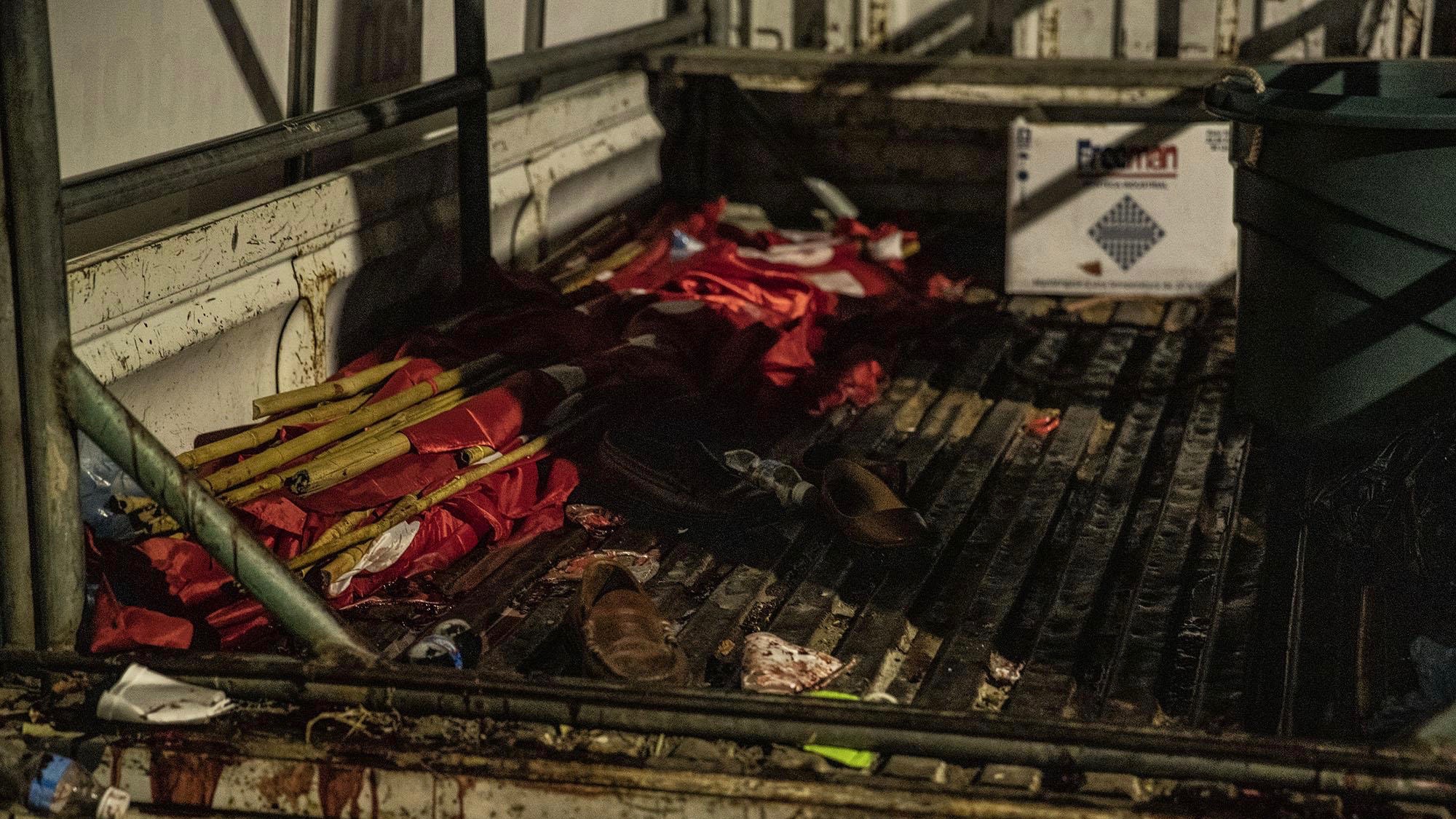On January 31, a group of El Salvador’s left-wing Farabundo Martí National Liberation Front (FMLN) party members was attacked by armed men in the capital San Salvador. In the violent incident, two members of the FMLN party died and five others were injured. The fatal victims, Gloria Rogel de Lopez and Juan de Dios Portillo Tejada, were veterans of the war.
The group was heading back to the party’s headquarters, after participating in an election campaign event in support of Rogelio Canales. Canales is the FMLN candidate for mayor of the capital in the upcoming legislative and municipal elections scheduled for February 28. On the way, a car followed the FMLN caravan in which at least 20 members were riding in, and two men from the car began firing at the truck.
The FMLN and several of its members condemned the attack and held the far-right president Nayib Bukele responsible for the onslaught. In a statement, the FMLN said that the aggression is the result of “the hate campaign sustained from the Presidential House and President Bukele against our party and our political activism.” The party demanded that the Office of Attorney General and the National Civil Police investigate the case and bring the material as well as the intellectual authors to justice.
Nidia Díaz, legislator of the FMLN party, indicated that the attack was not random, but intentional. Díaz said that the caravan was easily identifiable as it was decorated with party flags and had images of the candidates’ faces. “This would not happen if it were not living in the environment of intolerance and hatred promoted by the ruler of the nation, which stimulates and encourages hatred,” Diaz told El Faro, a digital publication from El Salvador.
Óscar Ortiz, the Secretary General of the FMLN, in a press conference held outside the Rosales hospital on January 31, denounced the attack as “a political and terrorist act that threatens the country and democracy.”
The leaders of almost all the parties contesting in the elections, except the ones related to President Bukele, condemned the climate of tension and division in which the electoral contest is taking place. Various international social and political leaders and organizations also repudiated the attack, expressed solidarity with the victims and demanded thorough investigation.
The head of the Attorney General’s Office, Raul Melara, also denounced the act. “This is serious, the electoral contest cannot become a bloodbath. We are already investigating, we will prosecute those responsible,” said Melara in a tweet.
Meanwhile, Bukele on his Twitter account suggested that the largest opposition party might have organized an attack against its own militants to obtain electoral gains. In his message, the president did not extend condolences to the families of the murdered people, nor did he demand justice for the victims.
Yesterday, he reported that the police had captured the three suspects and two of them were being treated for serious gunshot wounds. He also informed that two FMLN supporters, who allegedly fired back at the attackers, were also arrested.
According to the police, two of the three arrested men are bodyguards of health minister Francisco Alabí and the third man is a private security agent, who also had provided security services at the health ministry.
The incident took place two weeks after Bukele disrespected the 1992 peace accords, between the then Salvadoran government and the FMLN guerrilla group, which ended 12 years of civil war. On January 16, on the occasion of the 29th anniversary of the peace agreements, he called the peace accords a “corrupt pact” and a “farce”. He said that the agreements did not bring any benefits and only represented a negotiation between two leaders.





